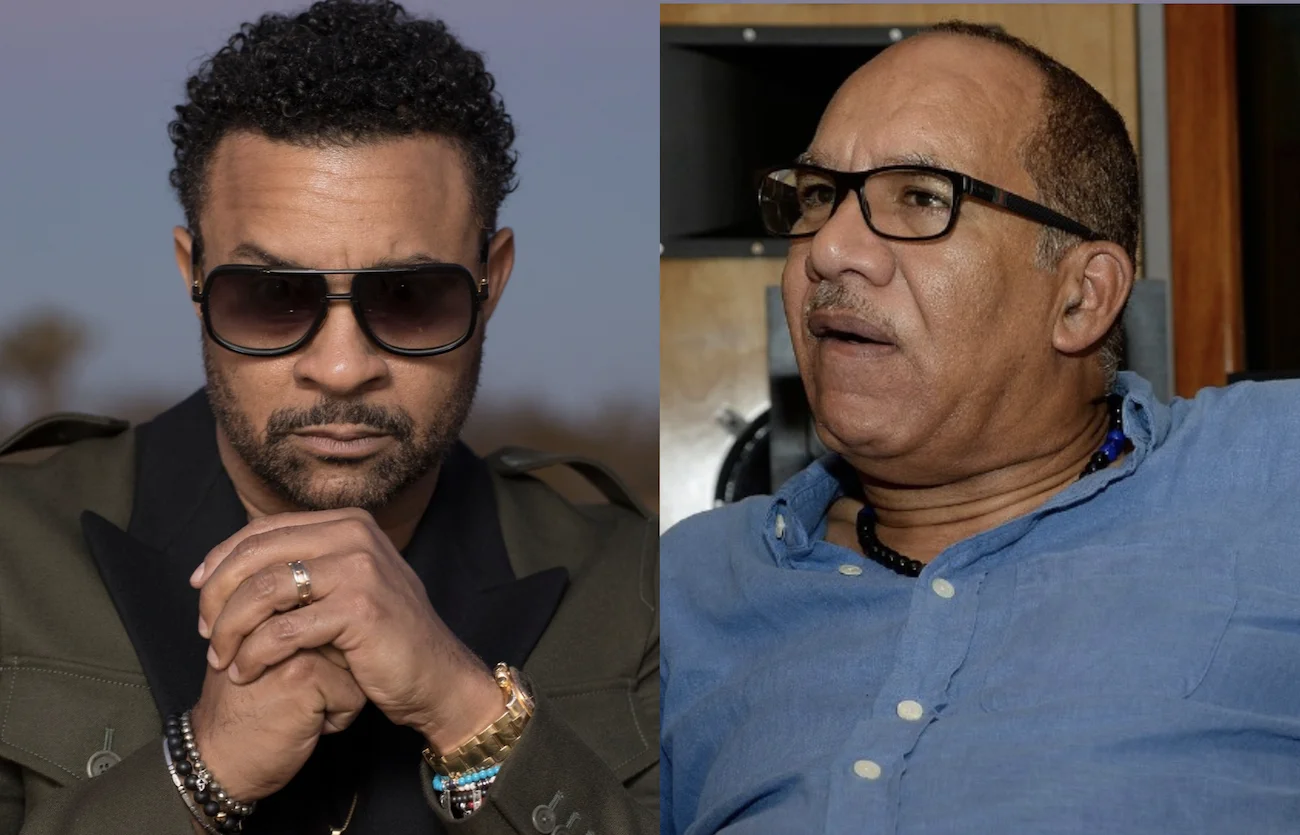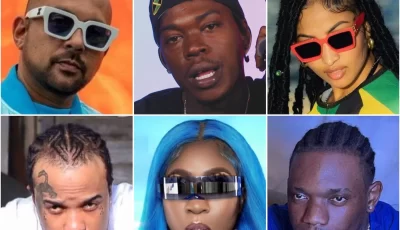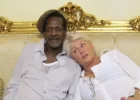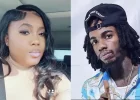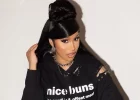Shaggy’s former manager, Big Yard’s Robert Livingston, is denying that he doubted and didn’t support Shaggy’s mega record, “It Wasn’t Me,” and even goes on to say he’s ready to bury the hatchet with the international superstar. In a continuation of what appears to be a ‘tell-all’ interview for TVJ’s Entertainment Report with Anthony Miller, Livingston responds to a 2020 Vice documentary on Shaggy’s career where the artist and another person said he had doubts about the song.
“Yeah man, Robert doesn’t like that song,” Hans Haedelt, Senior Director of A&R at MCA Records, said. “Sting and I loved it but we didn’t think it’s gonna make the record,” Shaggy adds.
Livingston, who was Shaggy’s manager, says that the reason he did not want to release the song was that the artist had previously released singles that made no impact.
“‘It Wasn’t Me’ was a song that we had many meetings about- keeping Rick Rock on the song, he took RR off three times. RR was the guy that did the demo and I keep saying to him leave RR on the song, RR made the song. I didn’t even know the song would even get that big but what I had said to him was ‘Shaggy we cannot release another single now. We had two singles, none of them didn’t make it,” he said.
“It Wasn’t Me” was a career-defining moment for Shaggy as that song changed his career and life into good fortune and launched his struggling career into global stardom. Robert Livingston, however, defended his position on the song while admitting that Shaggy alone believed in the record at the time. That wasn’t necessarily true since Sting International also believed in it and it took Hans Haedelt almost losing his job to get the song on the album.
“Going back to that, if everyone thought this song was a hit, why they didn’t play it the first time the album came out? If we choose another single and it didn’t work, we would have lost the deal so I would say force radio to play another single. Shaggy is the only person in that interview that I know personally think that record was a hit. But I didn’t tell him I didn’t like the record. He didn’t think a lot of the other songs was gonna be a hit, the ones den that hit and they hit,” he added.
“So, it’s about me saying it’s about the marketing- I don’t think the song was a great song to be released as a single,” he added.
In his last interview, Livingston denied that Shaggy’s deal was unfair and that he had mismanaged the “Angel” artist’s career, which cost him a lot of money in mistakes. Livingston had responded to Shaggy’s caution to other musicians in January when he said, “Some of us are artistes that end up trusting people around us, which might be the manager or something like that.”
“I am saying it over and over again ‘managers are not supposed to touch yuh money’. That is not your manager’s job. What you put together is a team. I am financially secure now but I had to build that back because I was not smart; I didn’t know the game,” Shaggy said.
In his latest interview, Livingston does address the claims again by Shaggy but defends his management of the artist’s early career while also appearing to address Shaggy’s comments in the Vice documentary.
“I made good decisions to take him where he got to and it [was] never recognized. It never been respected. And I also respected his input and talent and what he contributed,” he said.
In the meantime, Livingston does take credit for Shaggy’s career, which he managed from 1993- 2011, but he says their falling out is deeper.
“What is the real reason for all of this? Just speak the truth?” the Big Yard producer says.
When asked what he thinks is the real reason, Livingston does hint at some of the issues he and Shaggy had.
“When he looks back and he’s financed and thinks he could make more money and he think I should make him more money and also the fact that I’m too powerful in his career and he said that everything is in my name,” he says scoffing before adding, “I’m trying to figure out, I signed you. It’s not like I was your friend, I signed you as a businessman so you gotta look back yes it’s gonna be in my name. the American Express is gonna be in my name, everything gonna be in my name except the fact that when we started doing business together,” he said.
Robert Livingston does say that he and Shaggy “build” Big Yard, although he doesn’t explicitly say whether it was money from the artist that funded the studio.
He said Shaggy walked away with “Shaggy” while he walked away with Big Yard, something he hints didn’t seem to be fully supported by the artist.
“Big Yard is me and I brought him on board and said Shaggy I’m doing this, you want to get on board? He came on board not in the fact that he really wanted to but the fact that it was my thing and he was just supporting my thing. You leave with Shaggy and I have Big Yard. I could have said I need a stake in your branch, Shaggy because we built it together. I can’t say I build Big Yard, Shaggy and I build Big Yard,” he said before quickly correcting himself, “and the rest of the team. But what is in Big Yard? Most of the hot catalogue is in Universal, not Big Yard,” he said.
Livingston says he won’t be sitting around and “shut up anymore” and won’t have Shaggy disparaging his reputation and has even threatened to take legal action against Shaggy if he speaks on him.
Shaggy has never mentioned Livingston by name in any of his conversations, and the artist has continued to ignore his series of interviews.
